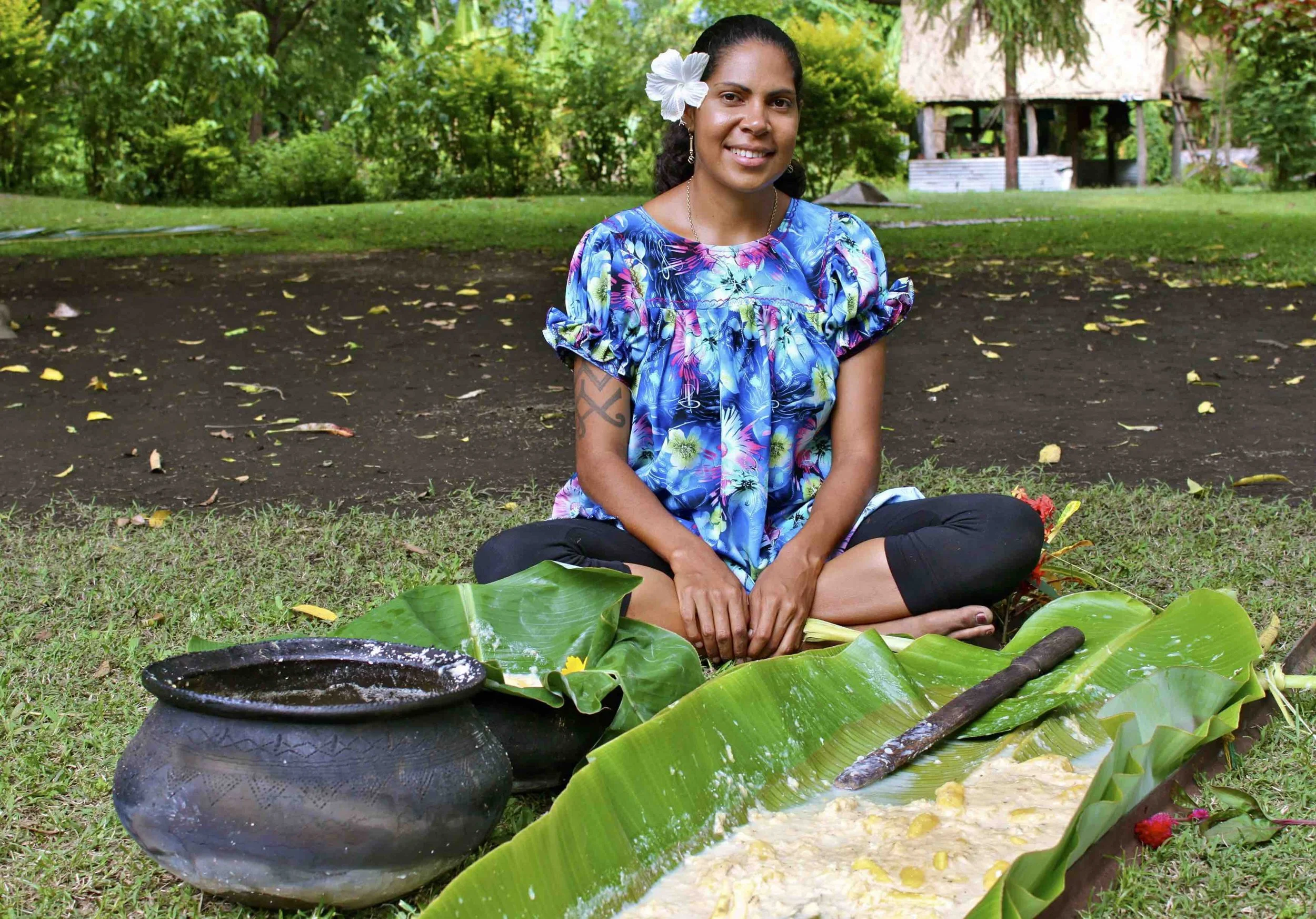Food is Life Melanesia: Sharing Agroecology Knowledge through Media Education in the Pacific Region
Lead Organization: Save PNG Inc.
Partner Organizations: The Centre for Social and Creative Media (University of Goroka, PNG); Kastom Gaden Association; The Vanuatu Cultural Center; Tjibaou Culture Centre; and the Social Empowerment & Education Program (SEEP).
Location(s): Papua New Guinea, Solomon Islands, Fiji, Vanuatu, New Caledonia.
Award: $75,000 over 18 months (2016-2017)
This woman-led project encourages sustainable agroecology practices and promote indigenous knowledge and innovations for local communities to become more self-reliant in addressing food and nutrition security, climate disaster and cultural disintegration in Melanesia. This project will encourage dialogue between governmental bodies, community groups, civil society, schools and churches in Melanesia.
Markham Valley.
Goals
A participatory learning approach through media and peer education enables Melanesians to share valuable agro-ecology knowledge.
- Produce a communication resource kit which can be disseminated to youth, women and family groups throughout Melanesia.
- Train and equip ‘Food is Life’ champions as facilitators to educate their peer networks in beneficial agro-ecology life skills and advocacy work.
- Save PNG’s Melanesian networks take a leading role in helping others become more self-reliant in elevating indigenous food sovereignty and agro-biodiversity as successful models of community development.
Challenges that the Collaborative Faced(s)
- Roles and responsibilities of the Collaborative in the project were difficult to negotiate and one partner failed to perform their task.
- Monitoring and Evaluation was weak and needs more commitment, time and resources to further measure impact of the project on target audiences.
- Language and Communication barriers with partners was difficult in French speaking countries such as New Caledonia and Vanuatu.
Maget and Mumu Bougainville.
Impacts/Milestones/Accomplishments
- Raised the profile of local advocates in elevating agro-ecology practices as a key factor in responsible food, health and community development.
- Youth, women and family groups were educated on the socio-economic, cultural and ecological benefits of sustainable food and climate resilient practices from the grass roots level throughout the Pacific.
- Melanesians now place value on their own indigenous land practices, health, nutrition and environmental stewardship in addressing food security and climate related issues.
- Melanesian communities use sustainable approaches in reducing non-communicable diseases, natural resource degradation and industrial farming.risks amongst local populations.
- Youth, women and families are given a voice to equally participate and share their own experiences, resources and solutions to help each other overcome climate change, poor health and food disaster in the region.
As a result of the Food is Life filming project in Melanesia the fusion of cultures and cuisines are now being mixed together throughout the Pacific. The cross-cultural influence and food diversity that can be created through different communities sharing each other’s culinary knowledge and cooking traditions is showing remarkable success. Save PNG is confident there will be some healthy styles of cooking being shared around Melanesia now that these delicious recipes have been introduced into different communities throughout the region.


